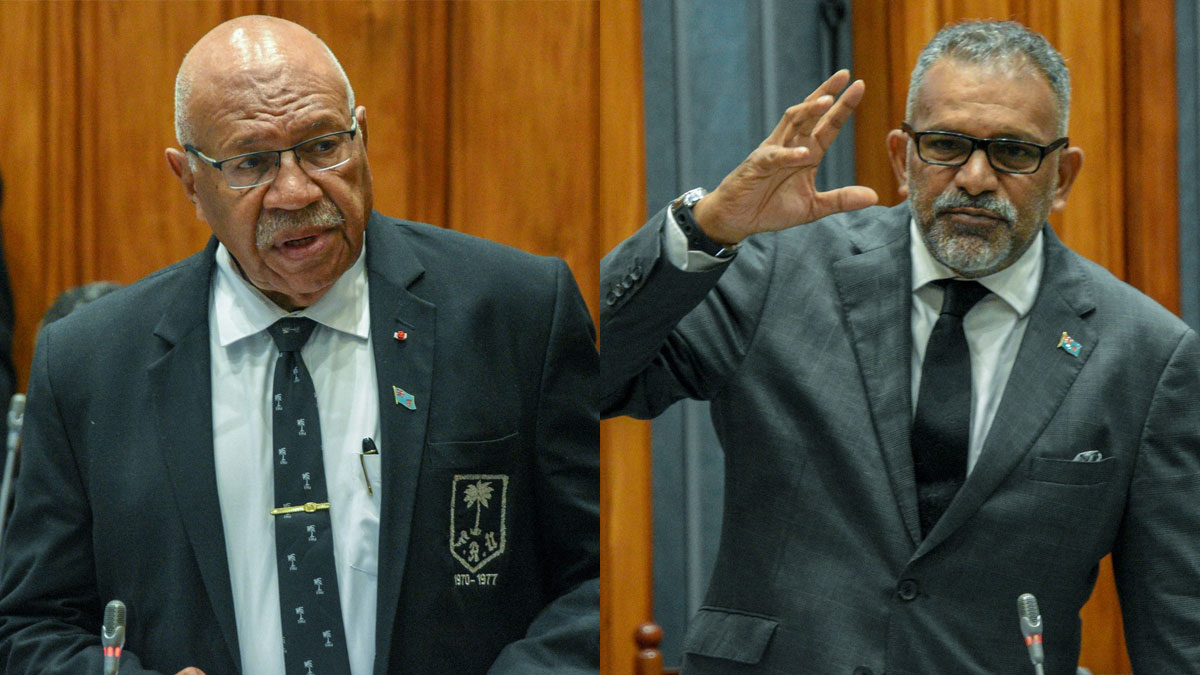
Prime Minister and Minister for Environment, Sitiveni Rabuka has reiterated his support for the International Atomic Energy Agency on discharging treated nuclear wastewater into the Pacific Ocean by Japan as his support is based on science and the independent assessment carried out by the IAEA however FijiFirst MP, Faiyaz Koya is pleading with the Prime Minister to retract his statement unless they get conclusive proof.
While delivering his ministerial statement, Rabuka says they acknowledge Japan's standing as an important development partner for Fiji and the region.
He says they recognise the position Japan has taken in consulting with the region before the discharge started.
Rabuka says in his capacity as the Prime Minister, he felt it was imperative that he support the IAEA report as the safety standard utilised by Japan is a scientifically accepted option.
He further says the government, with Pacific Islands Forum will facilitate ongoing dialogue with the Japanese government and the IAEA to ensure that we have access to the latest information and updates.
Rabuka says unfortunately the view of the Forum scientific panel is not consistent with the IAEA findings and does not account the advancement in water treatment technology that has enabled Japan and other nuclear energy users to effectively remove harmful radioactive elements from the wastewater, addressing many of the initial concerns.
He says the Advanced Liquid Processing systems used by the Fukushima Daiichi Plant has been proven effective in removing 62 radioactive elements.
He says it is imperative that there is continuous dialogue between the nations to ensure these standards are maintained throughout the process.
The Prime Minister says he felt that in keeping with our best interest and the best interest of our shared marine environment to focus on upholding the standards and maintain dialogue rather than standing in direct opposition to a decision that Japan has made.
Rabuka says it is worth noting that the peaceful march is a significant step forward in our democratic nation.
He says the former Attorney General Aiyaz Sayed-Khaiyum, one of his most vocal critics expressed contradictory and confusing views.
He says Sayed-Khaiyum initially argued that Japan presented compelling evidence about the safety of their proposal but then called for Fiji to assess the impact for itself.
The Prime Minister says that it is worth noting also that Sayed-Khaiyum's government did not issue a formal protest to Japan in 2021 when the wastewater discharge plan was first announced.
Rabuka says similarly former Prime Minister Voreqe Bainimarama who was portrayed as an international environmentalist made initial statements in 2021 seeking 'sincere dialogue' and 'continuous information sharing' with Japan however there was no formal protest and it is essential to note that the discharge had not yet occurred at that time.
He is urging those who do not share his position to go through thoroughly to study the views of scientists and other experts.
Opposition MP Faiyaz Koya says according to Section 40 of the Fijian Constitution, every person has a right to a clean and healthy environment which include the right to have the natural world protected for the benefit of the present and future generations through legislative and other measures.
He says it is our job to ensure that the oceans are protected.
Koya says not so long ago a motion was moved, not even by the Opposition but by Deputy Prime Minister Manoa Kamikamica and gathered the support of the whole House.
He says no one opposed the motion because of the section in the Constitution as they wanted to protect the future generation of Fiji.
Koya says the Prime Minister took it upon himself to decide because he thinks the scientific fact is okay.
The MP says he has seen the differing scientific report.
He says he pleads on behalf of every single Fijian and on behalf of every single person in government who stood up and spoke on it to retract what Rabuka did unless we get conclusive proof.
He says they all understand their relationship with Japan but there are times they will differ.
Koya says the dumping also violates the Rarotonga Treaty that Fiji is a signatory to and asks what happens to that.
He says China and South Korea has banned Japanese fish and asks what it says to us.
Koya says people can say that this is geopolitics but that decision is not taken lightly and they have expertise that we do not.
Koya says the question was asked by the Deputy Prime Minister very passionately that if it is okay to put it into the Pacific Ocean, why can they not put it in their own gardens and rivers.
Stay tuned for the latest news on our radio stations

